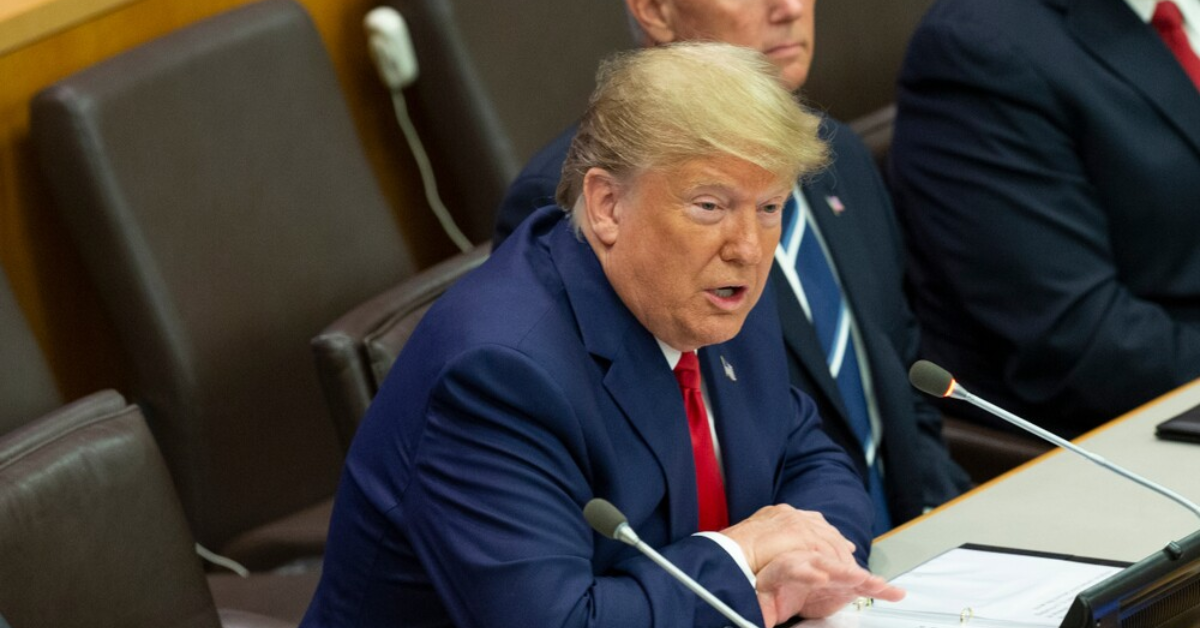The push for cleaner energy and electric vehicles (EVs) in Michigan is facing some serious challenges, thanks to recent actions taken by President Donald Trump. On January 20, Trump signed a series of executive orders that could slow down Michigan’s efforts to embrace renewable energy sources and electric vehicles.
Industries generally prefer stability and predictability, but President Trump’s latest move has created a lot of uncertainty. This is especially true in the energy sector, where many were hoping for a smoother transition toward clean energy solutions. However, Trump’s actions on his first day in office have raised concerns among those working to reduce the country’s carbon footprint.
The orders Trump signed on that day directly affect renewable energy projects. They put a temporary halt on any new permits for renewable energy initiatives, such as wind and solar power developments. Furthermore, funding for climate-focused projects under the Inflation Reduction Act (IRA) and the federal bipartisan infrastructure law has been paused.
For states like Michigan, which are committed to growing their renewable energy sectors, these executive orders could be a major setback. The IRA, which allocated billions of dollars to support green energy, now faces delays. This includes funding for electric vehicle charging stations, a crucial part of the infrastructure that supports the growing demand for EVs.
These developments are also significant because Michigan has been a leader in clean energy. The state has made substantial progress in its efforts to reduce its reliance on fossil fuels. Over the years, Michigan has ramped up efforts to install renewable energy systems, including solar and wind farms, and to build more electric vehicle charging stations.

However, the newly imposed restrictions on renewable energy projects have thrown a wrench in these plans. Developers and local governments who were relying on federal funding to help pay for these projects now find themselves uncertain about how they will proceed. Without the expected grants and permits, many of these projects may face delays or even cancellations.
Additionally, the pause on funding for EV charging stations is particularly concerning for Michigan’s automotive industry. Michigan is home to some of the largest car manufacturers in the world, including General Motors and Ford.
As the industry shifts toward electric vehicles, the demand for charging infrastructure has skyrocketed. These stations are essential for encouraging more people to drive electric vehicles. But with the freeze on funding, it’s unclear how soon Michigan will be able to expand its EV charging network.
The energy policies introduced by President Trump also reverse many of the climate-focused goals set by the previous administration. This shift places a spotlight on the ongoing debate about the role of government in shaping energy policy and addressing climate change. While Trump’s supporters argue that these changes will benefit industries like coal and oil, environmentalists and clean energy advocates warn that the long-term consequences could be harmful to both the economy and the planet.
In Michigan, local leaders are already expressing concern over how these decisions will impact their state’s energy transition. Michigan Governor Gretchen Whitmer has pushed for stronger clean energy programs and increased EV adoption in recent years. However, with federal support now on hold, the state’s ability to reach these goals may be hindered.
One of the major challenges is the lack of clarity about the future of the Inflation Reduction Act (IRA). This law, which was designed to accelerate the transition to renewable energy by providing tax incentives and grants, is now in a holding pattern. With its future uncertain, it’s difficult for businesses and local governments to plan for upcoming projects or investments in green technology.
On top of that, there are fears that the federal government’s decision to pause payments to infrastructure projects will stall Michigan’s push to become a leader in EV development. The state had been working hard to increase its EV market share by investing in public charging infrastructure, which would allow more residents to adopt electric vehicles.
Michigan’s electric vehicle manufacturers, such as General Motors, were also counting on this infrastructure growth to help make EVs more appealing to the average consumer. Without accessible charging stations, many consumers may remain hesitant about switching to electric vehicles.
In the face of these challenges, it’s unclear how long it will take for Michigan’s energy transition to recover. While some are optimistic that state-level initiatives may pick up the slack, it’s clear that the federal government’s role is crucial in ensuring the success of renewable energy projects.
As the situation continues to develop, both the energy and automotive sectors will need to adapt to the new reality. Whether through new policies or innovative strategies, Michigan’s future as a green energy hub now hangs in the balance.
Ultimately, Trump’s executive orders may lead to significant delays and complications for Michigan’s clean energy transition. The decisions made on January 20 have thrown a large shadow over the state’s progress, raising the stakes for renewable energy advocates and electric vehicle proponents alike. With uncertainty now clouding the future, the path forward for Michigan’s energy landscape remains unclvear.
Disclaimer: This article has been meticulously fact-checked by our team to ensure accuracy and uphold transparency. We strive to deliver trustworthy and dependable content to our readers.

